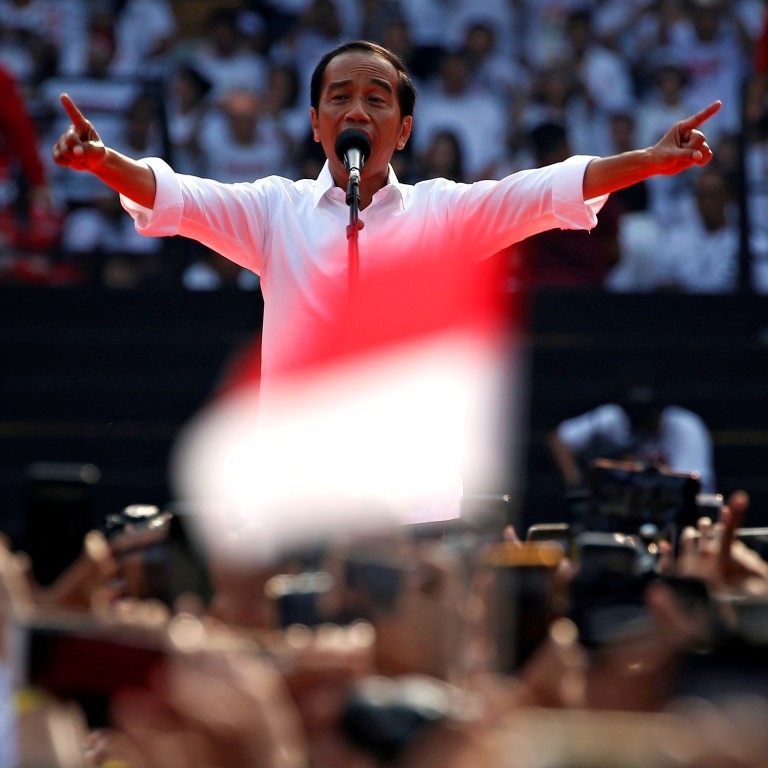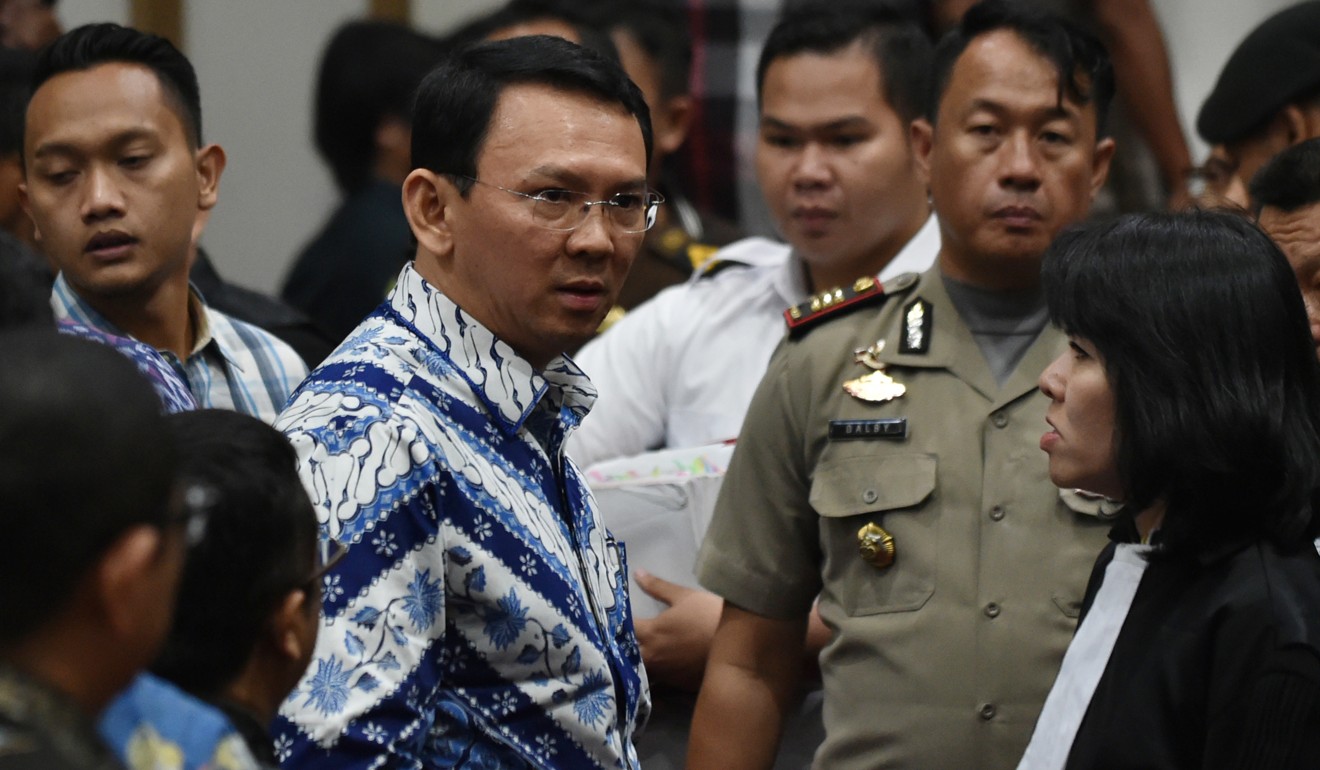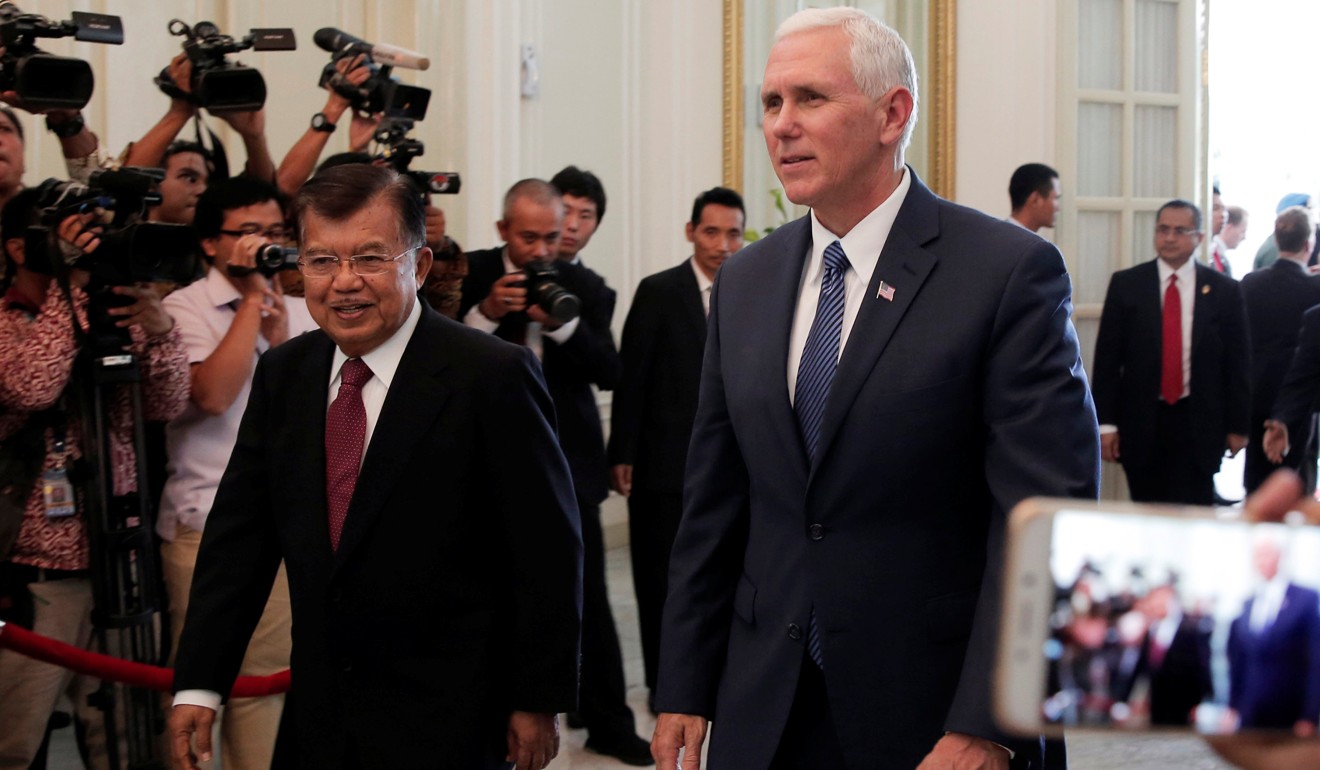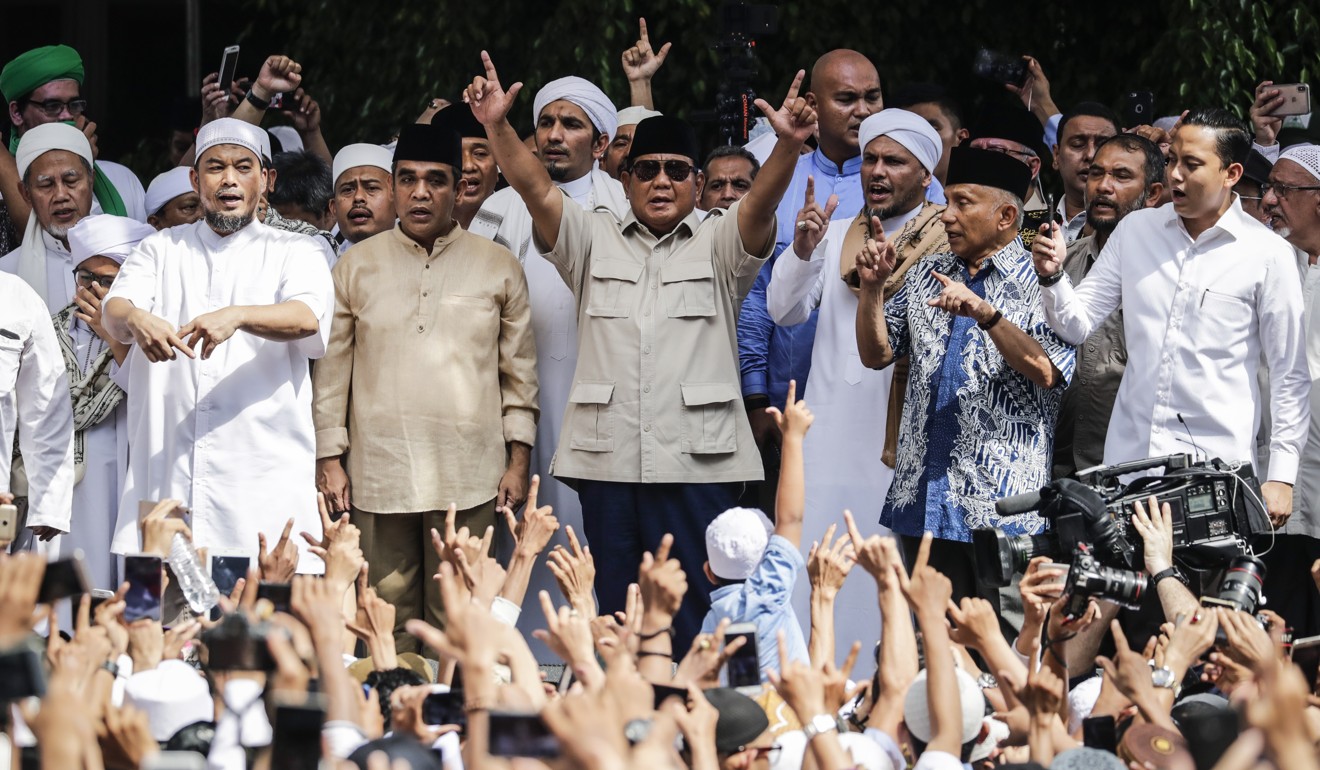
In Indonesia’s elections, identity politics almost trumped the economy
- In some areas, incumbent president Joko Widodo struggled to win votes despite high approval ratings and economic growth
- The reason for this disparity boils down to disinformation campaigns and increasing polarisation, says Yohanes Sulaiman

Why Prabowo insists he has won Indonesia’s presidential election
The pair garnered less than 20 per cent of the vote in Aceh and West Sumatra, where between 97 and 98 per cent of the population is Muslim. They also won less than 40 per cent of the vote in South Kalimantan, Riau, Banten, West Java, West Nusa Tenggara, and Jambi – provinces that are more than 95 per cent Muslim, except for Riau, where the figure is 88 per cent.

Hardline Islamists painted Jokowi as an enemy of Islam, and used that as a rallying cry to mobilise support for Prabowo-Sandiaga – ironic considering how Prabowo was not known for his piety and Sandiaga has always positioned himself as a religious moderate.
Another Ahok? Chinese Christian faces blasphemy rap in Muslim Indonesia
These developments likely influenced more conservative people, and translated to a lack of trust and support for Jokowi.
The case of South Sulawesi is instructive. Jokowi won there in 2014’s elections because his running mate was Jusuf Kalla, an influential politician and businessman who hailed from the province.

Last week, he was trounced, getting only 40.7 per cent of the vote, despite the province receiving the bulk of strategic infrastructure investments in eastern Indonesia over the past five years and recording economic growth of 7.07 per cent – the second-highest of all provinces in that part of the country.
It is possible that Jokowi’s vote share did not fall below 40 per cent precisely because so much was spent to develop the province. At the same time, however, South Sulawesi has a considerable number of conservative Islamic voters who were leaning towards Prabowo, believing the hoax that Jokowi is hostile towards Muslims.
Can Indonesia’s new cybercrime unit win its war on fake news?
This, coupled with a split among local political elite – such as Jusuf Kalla’s nephew who lent his support to Prabowo – meant it was difficult for Jokowi to win in the province.
Similarly, in North Maluku where three-quarters of the population are Muslim and economic growth last year was 7.92 per cent, Jokowi only received 43.24 per cent of the vote. The province, which was torn apart by sectarian clashes between Muslims and Christians more than a decade ago, has grappled with ethno-religious polarisation ever since. Past research also shows that Christian majority areas leaned towards Jokowi and those with more Muslims chose Prabowo in the last elections.
In essence, while the economy is important, its influence was dwarfed by the role of identity politics in this election, with the opposition painting Jokowi as an enemy of Islam.

The exceptions were Central and Eastern Java and Yogyakarta Special Region, where the moderate Muslim organisation Nahdlatul Ulama has the strongest influence. Since the defeat of Ahok, Jokowi has been courting Nahdlatul Ulama, and providing it with a lot of funding and support. In turn, Nahdlatul Ulama has positioned itself as an opponent of religious fundamentalists. And by turning out to vote, the organisation managed to bring Jokowi to victory.
How tradition, Nusantara Islam and the religious grass roots helped secure Jokowi’s win
So in 2024, we may see the issue of religious identity raise its head again, especially with the growing conservatism among Indonesian society. Presidential candidates will be asked to show their commitment to defend the Muslim faith. But at the same time, Jokowi’s victory shows that there is another path to victory, through building a coalition of moderate Muslims.
Yohanes Sulaiman is a lecturer in International Relations at the School of Government at the Universitas Jenderal Achmad Yani in Cimahi, Indonesia
